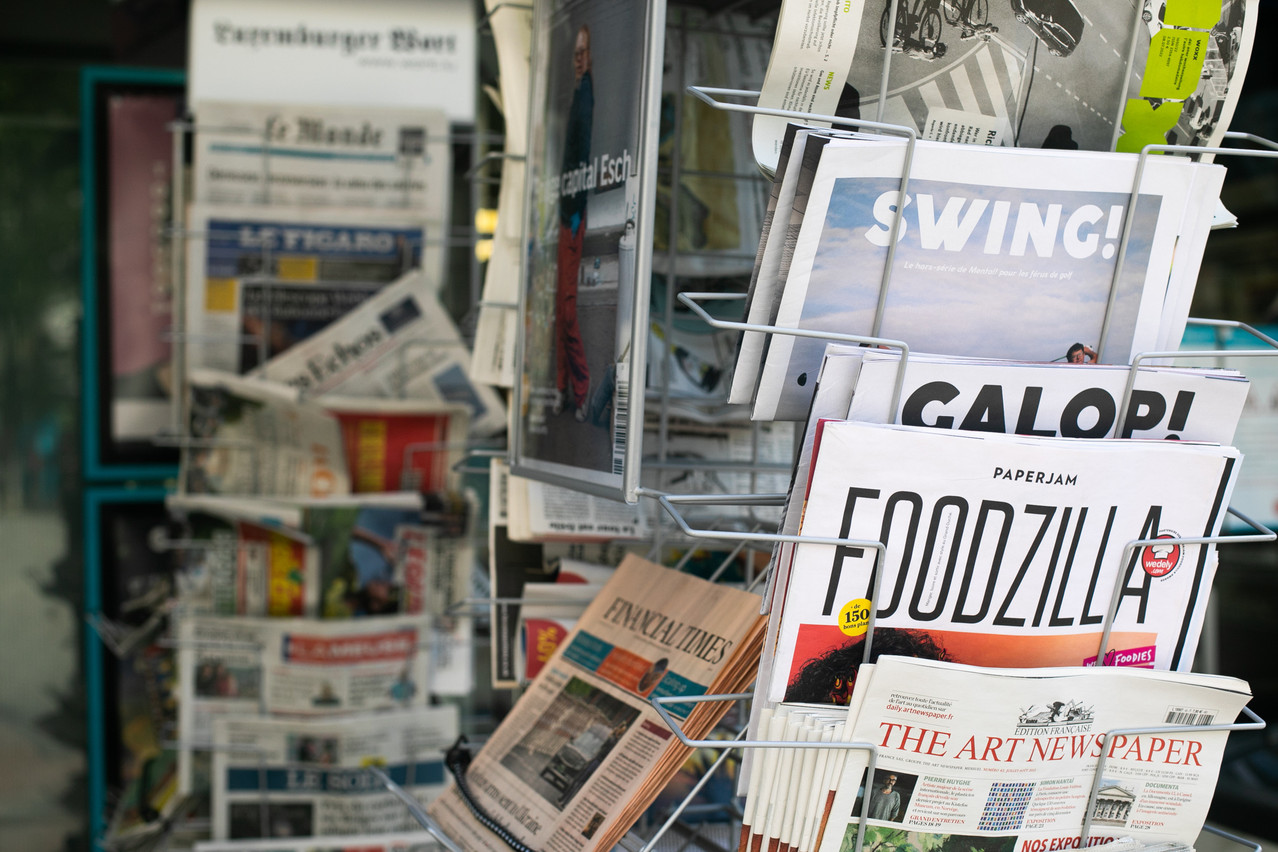Reporters Without Borders on 3 May published its annual index assessing the environment of journalism in the world, with the profession in increasingly dire straits amid government crackdowns on press freedom and negative impacts of AI and misinformation around the globe.
Luxembourg placed 20th in the ranking, which assesses five different indicators: the political, economic and sociocultural context as well as the legal framework and the safety of journalists.
The grand duchy scored lowest on its legal framework. “Luxembourg law guarantees freedom of expression and the protection of sources,” a country assessment said. “However, access to state-held information is not guaranteed, despite repeated requests from the journalists’ union.”
The union--the ALJP--to mark World Press Freedom Day in a statement renewed pressure on the government under prime minister (DP) to finally implement freedom of information laws, which have long been promised but not yet delivered.
“It is an indictment of Luxembourg politics that the political decision-makers continue to refuse meeting the international standard with a legally enshrined right on access to information for professional journalists,” it said.
Civil service censorship
Journalists, like members of the public or NGOs, currently must have received written refusal to access a document before they can file a request to the Commission for the Access to Documents (CAD) to issue an opinion on whether the document should be released. The government, however, must not respect this opinion, allowing the petitioner to start legal proceedings.
EU commissioner for justice Didier Reynders, during a to discuss a 2022 rule of law report, in parliament said he hopes journalists would soon get more access to information.
Bettel during a new year’s reception with Luxembourg’s press council had with the sector. The ALJP in Wednesday’s meeting finally demanded action.
The union also wants several circulars issued to the civil service aimed at improving press relations to be withdrawn. They essentially bar civil servants from speaking with the press directly, funnelling all communications through the ministry’s press offices, which the ALJP likens to censorship.
Both the ALJP and Reporters Without Borders warned of outsized support for private media player RTL, which in an agreement with the government takes on a quasi-public broadcaster role.
Despite a regime of media subsidies--under which companies receive €30,000 per year per professional journalist and a lump sum of €200,000--media outlets “remain under pressure and the grand duchy’s small size encourages conflicts between the media’s work and the various economic interests,” Reporters Without Borders said.
Greece lowest-ranking EU country
Globally, the situation of journalism was ranked as “good” in only eight countries in the index. Luxembourg formed part of 44 countries in which it was considered “satisfactory.” Ten years ago, in 2013, the ranking was “good” in 26 countries.
Norway, Ireland, Denmark, Sweden and Finland topped the ranking, with Lithuania, Estonia, Portugal and Timor-Leste also in the top ten.
Greece at 107th place is the EU’s lowest-ranked country, with Reporters Without Borders saying that journalists are “spied on by the intelligences services and by powerful spyware.”
Luxembourg has come under criticism for of Israeli spyware firm NSO. The company’s Pegasus software in 2021 was revealed to have been used in the hacking of opposition leaders, human rights activists and journalists around the world. The company has also been linked to the murder of Saudi journalist Jamal Khashoggi.
The bottom five of the 180-country list included Turkmenistan, Iran, Vietnam, China and North Korea. The situation of journalism is considered “problematic,” “difficult” or “very serious” in 128 countries worldwide.
Propaganda and AI
“The World Press Freedom Index shows enormous volatility,” said Christophe Deloire, secretary general of Reporters Without Borders, in a statement. “This instability is the result of increased aggressiveness on the part of the authorities in many countries and growing animosity towards journalists on social media and in the physical world.”
In Luxembourg, under a draft law presented last year, journalists will from threats. Leaking private contact details or personal information of a journalist will be punishable with a fine of €75,000 and up to five years in prison under the new rules.
This comes after anti-covid protesters had pelted the home of a reporter with eggs and sent death threats to several journalists.
But risks are also coming from elsewhere, Deloire said. “The volatility is also the consequence of growth in the fake content industry, which produces and distributes disinformation and provides the tools for manufacturing it.”
In 118 of the index’s 180 countries, respondents reported that political players in their country were often or systematically involved in disinformation or propaganda campaigns.
“The remarkable development of artificial intelligence is wreaking further havoc in the media world,” it said, for example citing AI-generated images. “The difference is being blurred between true and false, real and artificial, facts and artifices.”
